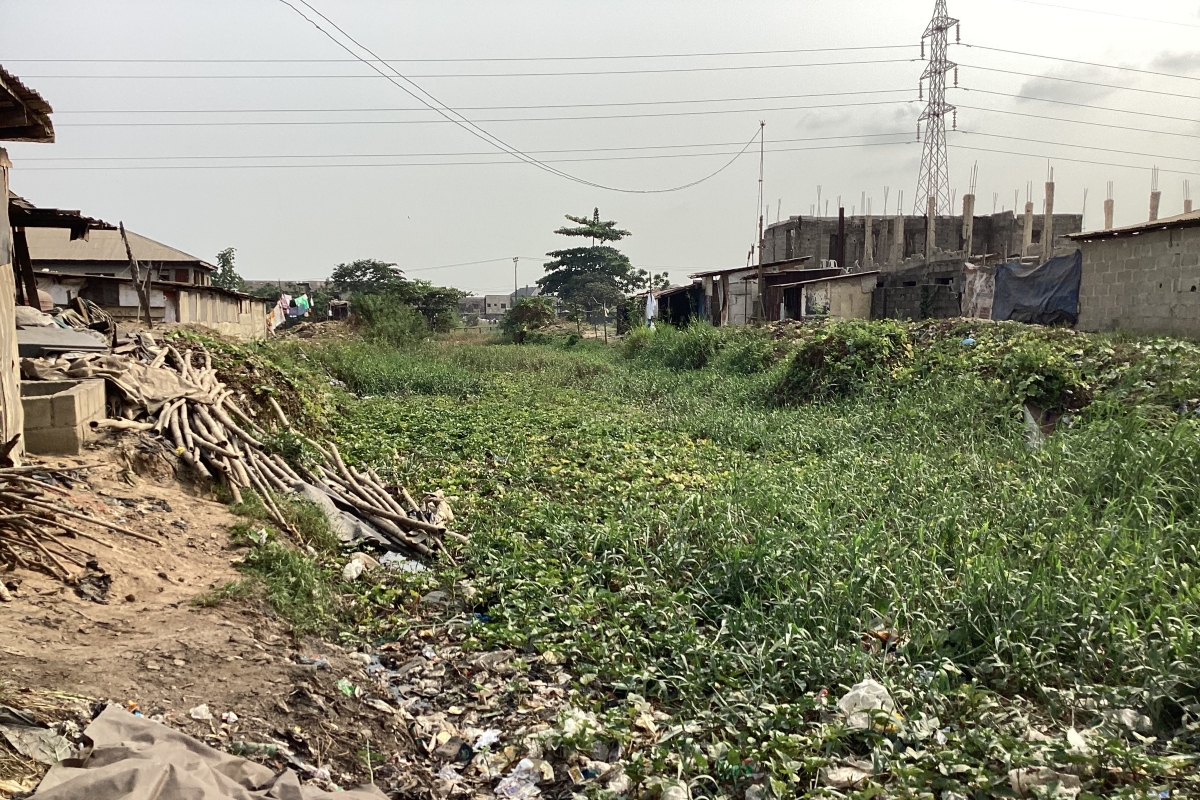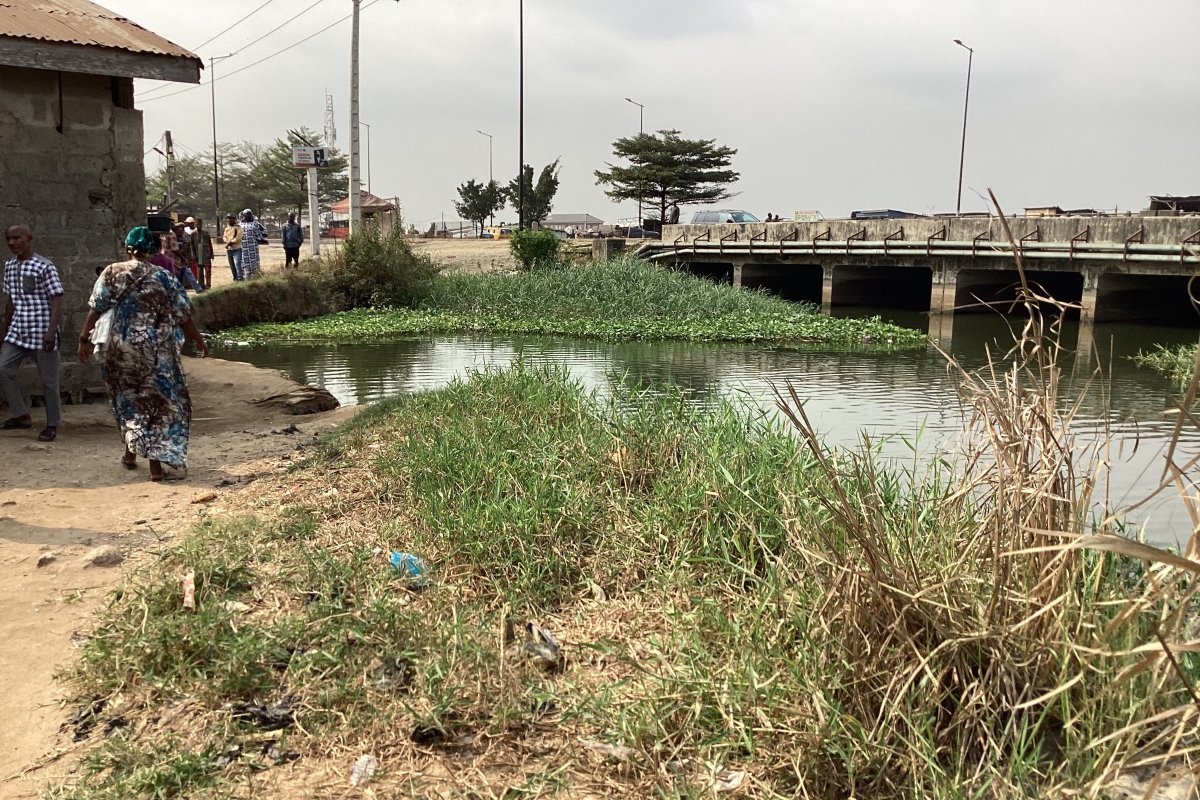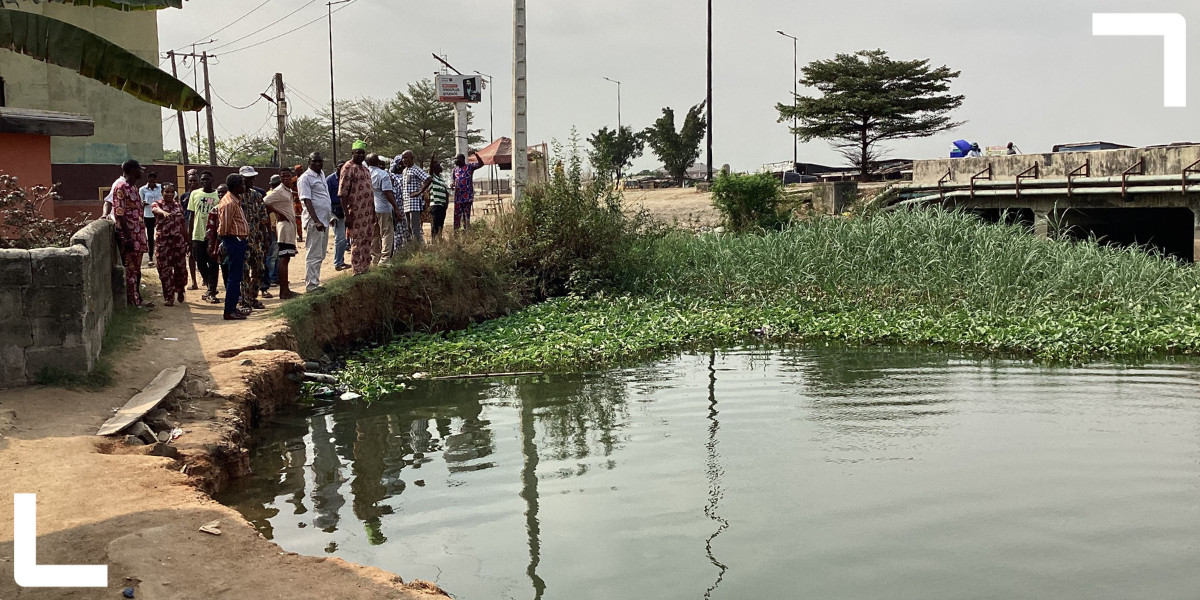By Peter Elias, action research project lead
Lagos is one of Africa’s fastest-growing cities, and what happens in its coastal informal settlements will shape the area’s climate future.
In Lagos, hundreds of low-lying coastal informal settlements are on the frontlines of the climate crisis. They face multiple risks – including flooding, heatwaves and displacement – without adequate infrastructure, community representation or access to resources. Yet the same communities living in these settlements hold immense knowledge, adaptability and social capital.
“From Margins to Models” – a new ACRC action research project being rolled out in the vulnerable coastal informal settlement of Ajegunle Ikorodu, Lagos – seeks to unlock that potential. It involves a community-driven, multidisciplinary and multistakeholder partnership to co-design and scale climate resilience strategies from the ground up, and building a reform coalition to catalyse this. It will be anchored in the lived experiences of those most affected by adverse climate impacts: the settlement’s estimated 18,000 inhabitants.
Mapping pathways for change
The overall goal of the project is to position Ajegunle Ikorodu as a learning hub and model for climate-smart, inclusive urban resilience planning – contributing to both local development and broader policy transformation in Nigeria and across the global South.
The project is structured in phased, participatory cycles, using the Climate Hazard and Vulnerability Assessment (CHVA) tool and approaches that prioritise community agency, co-learning and adaptive planning. The CHVA is a tool for hazard identification and exposure analysis, as well as vulnerability mapping. It incorporates socioeconomic factors to determine the differential vulnerability of coastal informal settlements. This will help to establish the levels of vulnerability experienced by different people in Ajegunle Ikorodu, based on a range of social, economic, political and cultural variables.
More granularly, the project aspires to conduct participatory climate risk mapping in Ajegunle Ikorodu through identifying and assessing climate hazards, exposure and vulnerability using community-based tools, spatial data and local knowledge systems. Additionally, the project will co-design practical, low-cost, local solutions to address challenges around housing, livelihoods, water, drainage and sanitation in the settlement.
Strengthening reform coalitions will also sharpen collaboration amongst community actors, government agencies, academics and NGOs, further catalysing co-implementation. As the project unfolds, lessons will be synthesised into a flexible, replicable model to enable shared learning and scaling up in other vulnerable settlements.

Co-creating with the Ajegunle Ikorodu community
Strengthening climate resilience in Ajegunle Ikorodu will be attained in two key stages. First, through building on existing community structures, including resilience plans and strong social networks. Second, by prioritising the inclusion of marginalised groups and fostering cross-sector collaboration between experts and local actors. The initiative seeks to break the silo mentality within the community and embraces a learning-by-doing approach through pilot initiatives. Ultimately, it aspires to influence policy by leveraging on proper documentation, fostering policy dialogues and using storytelling to shape Lagos State’s climate and informal settlement strategies.
The participatory climate resilience project will be co-designed with residents, local leaders, researchers, NGOs and government actors in Lagos. It aims to co-create scalable, people-centred solutions that address the climate challenges already facing Ajegunle Ikorodu – including sea-level rise, tidal surges, erosion and extreme heat. The approach is a departure from top-down interventions, which impose external solutions on communities. Rather, this project will build on local knowledge, priorities and informal systems to develop a resilience framework that can be scaled to similar urban contexts across Lagos, Nigeria and beyond.
A six-step community-led process
The project outlines a six-step process to co-create a scalable, community-led framework for building climate resilience and urban reform in Ajegunle Ikorodu:
1. Community engagement and trust building through town hall meetings, stakeholder mapping and participatory forums to ensure inclusive representation.
2. Climate vulnerability and asset mapping using participatory GIS, Ideamaps data ecosystems, storytelling and fieldwork to document local risks and capacities.
3. Solution co-design workshops to bring together residents, technical experts and government officials to develop locally appropriate solutions.
4. Intervention identification and capacity building by finding appropriate solutions (such as nature-based drainage systems and heat-resilient shelters) while training local actors towards sustainable implementation strategies.
5. Monitoring, learning and feedback loops using real-time feedback mechanisms to adapt the process and refine the emerging framework.
6. Scaling strategy and policy engagement to package outcomes into a model for replication and engagement with relevant Lagos State Ministries, Departments and Agencies for uptake and integration.

Ajegunle Ikorodu, like many similar coastal informal communities, is both at risk and full of potential. With several climate policies and action plans in Lagos State, it becomes imperative to move from margins to models, because resilience should start at the roots. Therefore, “From Margins to Models” is not just a project. It is a movement toward equity, inclusion and climate justice, where those most affected by the climate crisis and impacts are prioritised and empowered to become co-creators of the solutions.
By working together from the ground up, we can build a future that’s not just resilient but truly inclusive. If this model of community-driven, scalable climate action succeeds here, it can offer a blueprint for resilience across Lagos, Nigeria, West Africa and beyond.
Photo credits: Peter Elias. Scenes showing drivers and impacts of flood in Ajegunle Ikorodu, Lagos.
Note: This article presents the views of the authors featured and does not necessarily represent the views of the African Cities Research Consortium as a whole.
The African Cities blog is licensed under Creative Commons Attribution-NonCommercial-NoDerivatives 4.0 International (CC BY-NC-ND 4.0), which means you are welcome to repost this content as long as you provide full credit and a link to this original post.


